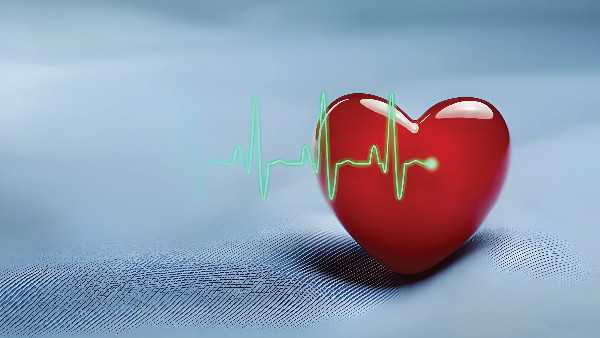All the organs of the body receive an adequate amount of blood through the human heart. The rate at which your heart beats, known as heart rate, is a variable factor among individuals, occasionally falling below what is considered the average. This raises the question: Is a slow heart rate a normal aspect of heart health, or should it trigger concern? In this article you will get a deep understanding of the heart rate, the meaning of slow heart rate, and when it becomes concerning. We will also emphasize the pivotal role of ECG tests in monitoring heart health.
What is a heart rate?
The heart rate is the number of times the human heart contracts in a minute. Therefore, to gauge it, we use the beats per minute as a standard. For adults at rest, the typical heart rate generally ranges between 60 and 100 BPM. A heart rate below 60 BPM is typically classified as slow, a condition referred to as bradycardia.
What Causes a Reduction in Your Heart Rate?
The following are the basic causes for a reduction in heart rate:-
- Athletes Cardiovascular Conundrum– Athletes (especially long-distance runners and cyclists) tend to have a slower heart rate than the normal range. This occurs due to the immaculate condition of their cardiovascular health and their bodies’ adaptability to it.
- Age: As individuals age, their heart rate tends to decrease naturally. It’s not uncommon for elderly individuals to have resting heart rates below 60 BPM.
- Medical Conditions: Bradycardia can also result from various medical conditions, including:
- Heart Block: A condition where the electrical signals in the heart are delayed or blocked.
- Hypothyroidism: You can have a slower heart rate if the activity of your thyroid gland is slow.
- Obstructive Sleep Apnea: Episodes of breathing cessation during sleep can cause bradycardia.
ECG Tests’ Role in Heart Monitoring
Electrocardiogram tests always come in handy to monitor the heart. They record the heart’s electrical activity and can identify irregularities in heart rate and rhythm. If you believe you have a heart problem or your healthcare provider believes so, you must get the ECG test done to identify it.
Difference Between a Slow Heart Rate and a Fast Heart Rate?
There is a significant difference between a slow heart rate and a fast heart rate. In other words, the difference between tachycardia and bradycardia is stark. Bradycardia is a condition in which the heart rate goes below 60 beats per minute and tachycardia is a condition in which the heart rate goes above 100 beats per minute.
Both medical conditions normally occur in individuals and are not concerning, especially if we speak of slow heart rate. Individuals while sleeping also experience nocturnal bradycardia where the heart adjusts itself to sleep mode and slows down its rate. Hence, in a completely conventional scenario, it is not a thing of concern. So when should you worry? Let’s try to understand below.
When Should You Worry?
Typically, the slow heart rate is not something to be concerned about. However, in some cases, the prolonged episodes of the condition can lead to some dangerous consequences. The symptoms for this are provided below.
- Symptoms:- If the slow heart rate is accompanied by symptoms like fainting, dizziness, lack of breath, etc, then it indicates underlying issues.
- Abrupt Changes: If your heart rate suddenly slows down without an apparent cause, it’s important to seek medical evaluation and consider an ECG test.
- Consistently Low Heart Rate: If your resting heart rate consistently falls below the normal range, even if you are well-conditioned, it is a potential cause for concern. In this case, you can opt for an ECG test to learn the cause of this.
In most cases, a slow heart rate is not an immediate cause for alarm, particularly if it falls within the normal range for your age and physical condition. Nevertheless, if you experience symptoms or observe a substantial and unexplained decline in your heart rate, it is crucial to consult a healthcare professional and utilize ECG tests for heart health monitoring. Healthcare experts possess the expertise to evaluate your medical history, perform essential tests, and determine whether further evaluation or treatment is necessary. When it comes to your heart health, it is always important to be careful and look for guidance from a medical expert when required.


